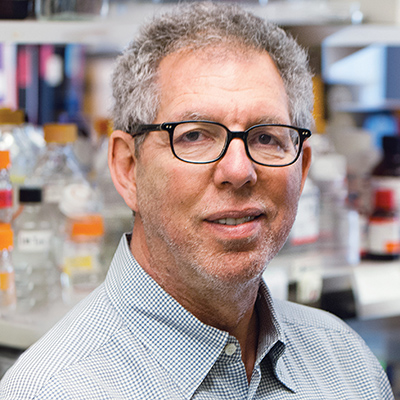Obesity: Causes and the New Treatments
The End of the Beginning
6:30 – 7:30 PM
Reception to follow
The Rockefeller University
1230 York Avenue at East 66th Street
New York, NY 10065
VIDEO(opens in new window) DONATE(opens in new window)
SPEAKER

Jeffrey M. Friedman, M.D., Ph.D.
Marilyn M. Simpson Professor
Laboratory of Molecular Genetics
The Rockefeller University
Investigator, Howard Hughes Medical Institute
HOST
Richard P. Lifton, M.D., Ph.D.
President and Carson Family Professor
Laboratory of Human Genetics and Genomics
The Rockefeller University
Medicines such as Ozempic and Wegovy have achieved blockbuster status due to their effectiveness promoting weight loss. These drugs mimic the activity of GLP-1, a natural hormone that is released after eating. Originally developed for type 2 diabetes, this drug class is now offering new hope to individuals who have struggled unsuccessfully to control their weight through diet and exercise.
Jeffrey Friedman, a physician-scientist at The Rockefeller University, sees the new weight loss drugs as both a medical milestone and a dramatic turning point in the quest to understand the causes of obesity. Dr. Friedman, a recipient of the Albert Lasker Award, the Breakthrough Prize, and many other honors, is an innovator in research on metabolism. In the mid-1990s, he and his colleagues isolated an obesity-related gene and showed that it encoded a previously unknown hormone, dubbed leptin, that plays a key role in controlling appetite, energy expenditure, and fat storage. The discovery of leptin provided compelling evidence of a genetic contribution to obesity and established a model for chemical signaling between the digestive tract and the brain that continues to inform basic research and drug discovery related to obesity.
Clinical studies of today’s revolutionary weight-loss medicines are showing that they may also protect against an astonishing range of adverse health complications, including heart attack, stroke, hypertension, addiction, inflammation, and neurodegenerative disease. These findings lead one to ask: how much do we really know about how these drugs work? What remains to be learned? What can these medications teach us about the causes of obesity and other diseases? Dr. Friedman will focus on these questions and many others as he explores the past, present, and future of obesity research.